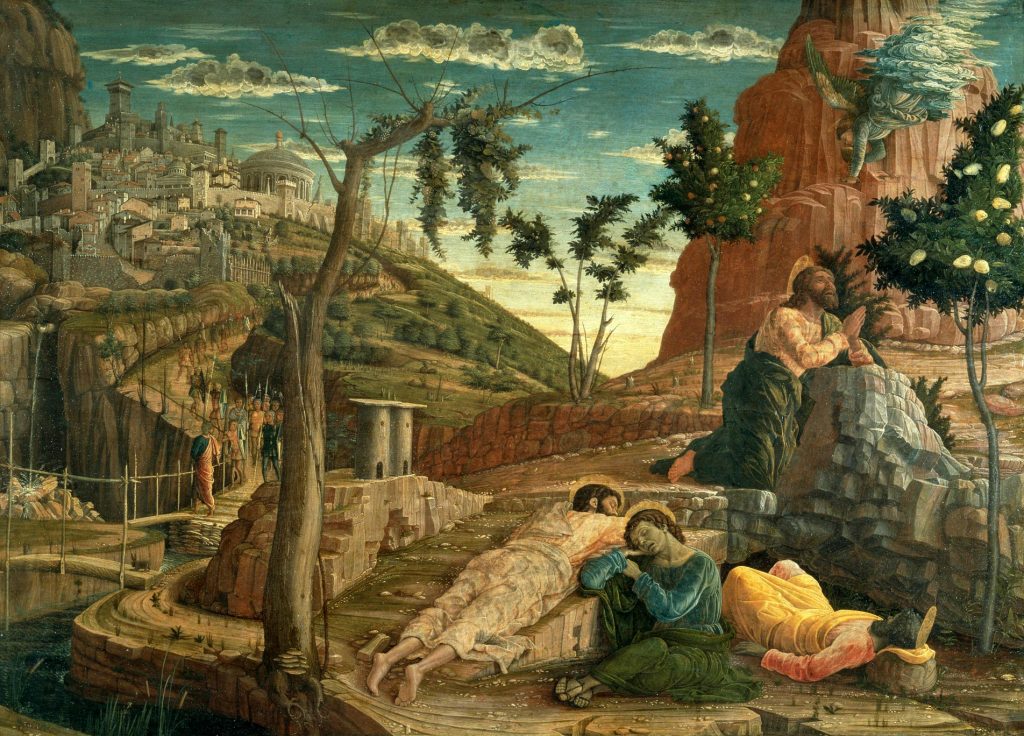Herman Detering has begun a series of posts reviewing Lena Einhorn’s work at Mythicist Papers.
Musings on biblical studies, politics, religion, ethics, human nature, tidbits from science



Once more exploring a question raised by Lena Einhorn in A Shift in Time — this time with doubts….
Was Jesus originally the Egyptian prophet we read about in the works of the ancient Jewish historian Josephus? Lena Einhorn seems to think so in A Shift in Time where she lists seven points in common between them. I won’t discuss those seven points but will look at her seventh:
And last, but not least, “the Egyptian” is defeated on the Mount of Olives, which is where Jesus was arrested. It is also from there that both men have declared their prophecies [that the walls of Jerusalem would fall down].
Actually Jesus predicted the walls of the buildings, in particular the Temple, would be pulled down, not the walls of Jerusalem. I have thought of the Egyptian as attempting to re-enact Joshua’s feat of miraculously having the walls of a great city collapse while Jesus (the Greek form of Joshua) spoke of the destruction of the Temple. But that’s a caveat we’ll set aside for now but return to later.
To begin, let’s be sure we have the picture. Josephus writes about the Egyptian twice, first in Wars (written about 78 CE) and second in Antiquities (about 94 CE). Here’s what he tells us:
But there was an Egyptian false prophet that did the Jews more mischief than the former; for he was a sorcerer, and pretended to be a prophet also, and got together thirty thousand men that were deluded by him;
these he led round about from the wilderness to the mount which was called the Mount of Olives, and was ready to break into Jerusalem by force from that place; and if he could but once conquer the Roman garrison and the people, he intended to domineer over them by the assistance of those guards of his that were to break into the city with him.
But Felix prevented his attempt, and met him with his Roman soldiers, while all the people assisted him in his attack upon them, insomuch that when it came to a battle, the Egyptian ran away, with a few others, while the greatest part of those that were with him were either destroyed or taken alive; but the rest of the multitude were dispersed every one to their own homes, and there concealed themselves.
War of the Jews 2.261–263
Then about fifteen years later Josephus wrote:
There came out of Egypt about this time to Jerusalem one that said he was a prophet, and advised the multitude of the common people to go along with him to the Mount of Olives, as it was called, which lay over against the city, and at the distance of five furlongs.
He said further, that he would show them from hence how, at his command, the walls of Jerusalem would fall down; and he promised them that he would procure them an entrance into the city through those walls, when they were fallen down.
Now when Felix was informed of these things, he ordered his soldiers to take their weapons, and came against them with a great number of horsemen and footmen from Jerusalem, and attacked the Egyptian and the people that were with him. He also slew four hundred of them, and took two hundred alive.
But the Egyptian himself escaped out of the fight, but did not appear any more.
Antiquities of the Jews 20.169–172
The story has changed in some details over those fifteen years. The event itself is set in the 50s CE. Josephus first writes about it around 20 or more years later. That’s about the same time span between today and the catastrophic raid on the Branch Davidian cult in Waco, Texas. Josephus appears to be saying that the Egyptian’s plan was to attack Jerusalem without any thought of a miracle to open the gates for them.
Approximately thirty five years after the event (compare today’s distance from the assassination attempt on President Reagan) Josephus introduces the Egyptian’s prophecy to command the walls of Jerusalem to do a Jericho.
So unless I am missing something hidden by a poor translation it seems that there is room for doubt that the Egyptian really was known at the time to have told his followers that the walls would obey his voice. One can imagine people talking about this fellow and mockingly asking how he could possibly have seriously thought he would take over Roman occupied Jerusalem, and how from such scoffing someone suggests he probably thought he could repeat the Jericho miracle. Or maybe he really did make such a declaration and Josephus simply failed to mention it in his first account. However that may be, years later when the event was recalled this detail did become part of the story. Who knows if it was Josephus’s memory or if he picked up the detail from someone else?
What, then, connects the Mount of Olives setting in the story of the Egyptian with our accounts of Jesus?
There are two links. Continue reading “Jesus and “The Egyptian”: What to make of the Mount of Olives parallel?”